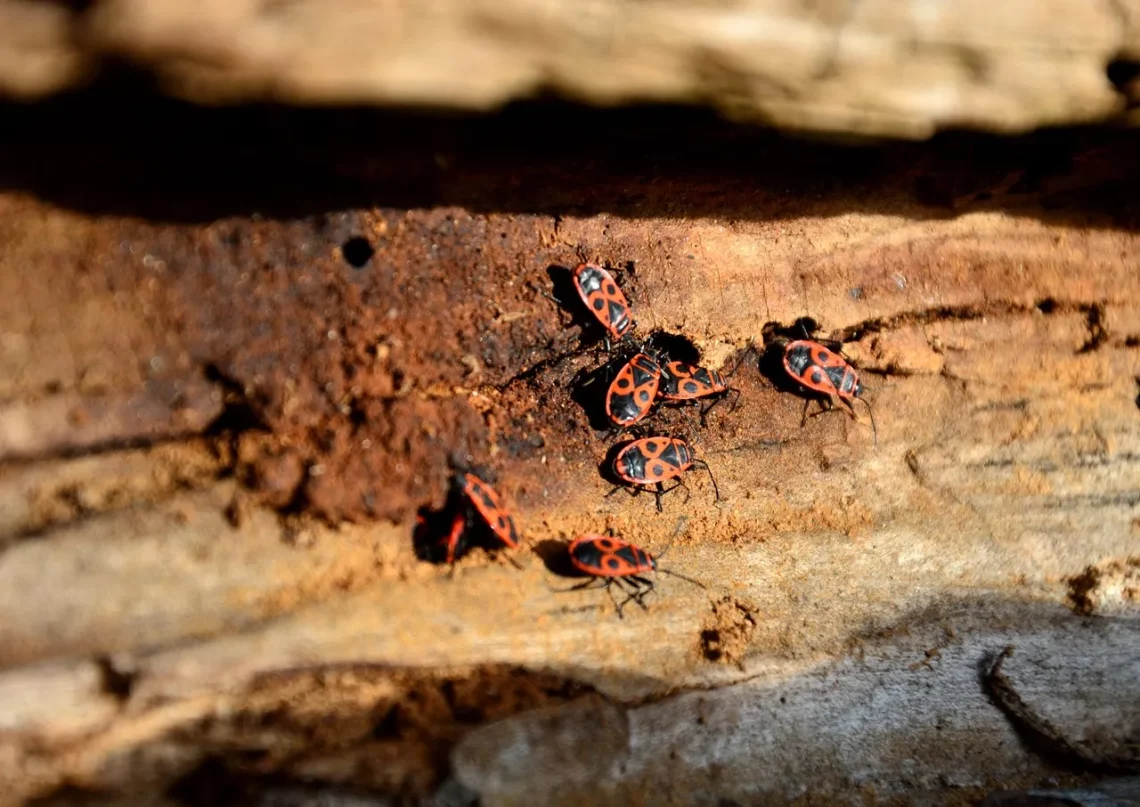
Effective Strategies to Get Rid of Chicken Mites for Good
Dealing with chicken mites can be an overwhelming experience for poultry owners. These tiny parasites can wreak havoc on your flock, leading to serious health issues for your birds. Chicken mites are not only bothersome for the chickens themselves but can also affect their egg production and overall well-being. As a result, it’s essential to take proactive measures to eliminate these pests and ensure a healthy environment for your poultry.
Understanding the biology and behavior of chicken mites is crucial in addressing the problem effectively. These parasites thrive in warm, dry conditions and can quickly multiply if left unchecked. They feed on the blood of chickens, leading to stress, irritation, and in severe cases, anemia. This not only impacts the health of the chickens but can also result in decreased egg production and lower meat quality. Therefore, addressing a mite infestation promptly is vital for any poultry operation, whether small-scale or commercial.
In addition to the direct impact on chickens, the presence of mites can lead to secondary infections and other health complications. The stress caused by these pests can weaken the birds’ immune systems, making them more susceptible to diseases. Consequently, ensuring that your flock is free of mites not only improves their quality of life but also protects the investment you’ve made in your poultry. Effective strategies for mite control are essential for maintaining a healthy and productive flock.
Understanding Chicken Mites and Their Impact
Before you can effectively tackle chicken mites, it’s vital to understand what they are and the damage they can cause. Chicken mites, primarily the Northern Fowl Mite and the Red Mite, are ectoparasites that infest birds, particularly chickens. They are tiny, often barely visible to the naked eye, which makes them difficult to detect until the infestation has become severe.
The life cycle of chicken mites consists of several stages: eggs, larvae, nymphs, and adults. They reproduce rapidly, with females laying dozens of eggs daily. This exponential growth means that a few mites can quickly escalate into a full-blown infestation. Chicken mites are nocturnal, which means they primarily feed during the night. This behavior makes it challenging for poultry owners to notice their presence until the signs of infestation become apparent.
The effects of chicken mite infestations can be severe. Affected chickens may exhibit symptoms such as lethargy, feather loss, and skin irritation. In severe cases, they may suffer from anemia due to blood loss. The stress caused by the constant irritation can lower their egg production and overall health. Infestations can also lead to behavioral changes, such as increased aggression as chickens become irritable from itching and discomfort.
Additionally, chicken mites can pose a risk to humans, as they can bite if they are present in large numbers. While they do not transmit diseases to humans, their bites can cause irritation and discomfort. Therefore, understanding the implications of a mite infestation is crucial for any chicken owner, as it highlights the need for effective management strategies.
Prevention Techniques to Avoid Infestations
Preventing chicken mite infestations is often easier than addressing them after they occur. Implementing proactive measures can save poultry owners time, money, and stress. One of the most effective preventive strategies is maintaining a clean and dry environment for your chickens. Regularly cleaning the coop, nesting boxes, and surrounding areas helps eliminate potential breeding grounds for mites.
Ensure that bedding is changed frequently to minimize moisture and organic debris where mites thrive. Using materials like straw or wood shavings can provide a comfortable environment for your chickens while also making it easier to spot and remove any signs of mites. In addition, consider using diatomaceous earth in the bedding. This natural powder can help deter mites by dehydrating them on contact.
Another essential preventive measure is to monitor your flock closely. Regular health checks can help you spot any early signs of mite infestations, such as feather loss or unusual scratching behavior. Keeping a close eye on your chickens allows you to act quickly before a small problem turns into a significant infestation.
Additionally, consider integrating new birds into your flock carefully. New chickens can inadvertently introduce mites and other parasites. Quarantine new arrivals for at least a few weeks to ensure they are free from mites before integrating them into your established flock. This practice can significantly reduce the risk of introducing pests and diseases into your existing birds.
Lastly, maintaining good overall flock health is crucial. A balanced diet, clean water, and proper housing conditions contribute to stronger immune systems in chickens, making them less susceptible to infestations. Healthy birds are better equipped to fend off pests, reducing the likelihood of mite problems in the first place.
Effective Treatment Options for Existing Infestations
If you discover that your flock has a mite infestation, it’s crucial to act quickly and efficiently to eradicate the pests. Several treatment options are available, ranging from natural remedies to chemical solutions. The choice of treatment will depend on the severity of the infestation and personal preference.
One of the most common natural treatments is the use of diatomaceous earth. This powdery substance consists of fossilized algae and is effective in killing mites by dehydrating them. Sprinkling diatomaceous earth in the coop and around the chickens can help reduce mite populations. However, it’s essential to ensure that the product is food-grade and safe for poultry.
Another natural option includes the use of essential oils, such as lavender or tea tree oil. These oils have natural insect-repellent properties and can be diluted with water and sprayed in the coop. While they may not eliminate a severe infestation, they can help deter mites and provide a more pleasant environment for your birds.
If the infestation is extensive, chemical treatments may be necessary. There are various commercial products available, including sprays, powders, and systemic treatments. It’s vital to follow the manufacturer’s instructions carefully to ensure the safety of your flock. Additionally, consider consulting with a veterinarian for recommendations on the most effective and safe treatments for your specific situation.
Regardless of the treatment method chosen, it’s essential to combine it with thorough cleaning of the coop and surrounding areas. Remove all bedding, clean surfaces, and treat any affected areas to prevent re-infestation. After treatment, continue monitoring your flock for any signs of returning mites, and maintain regular health checks to ensure your chickens remain healthy and mite-free.
Maintaining Long-Term Control Over Mite Populations
Once you have successfully treated a mite infestation, the next step is to implement long-term control measures to prevent future outbreaks. Consistency in maintenance and monitoring is key to keeping mite populations at bay.
Establishing a regular cleaning schedule is essential. Daily or weekly inspections of the coop and chickens can help you catch any early signs of mites before they become a significant problem. Clean bedding, nesting boxes, and feeding areas regularly to minimize mite habitats.
Incorporating beneficial insects into your environment can also help control mite populations. Certain insects, such as predatory mites, can naturally reduce the number of harmful mites. Research local options and consider introducing these beneficial species to your coop.
Another effective long-term strategy is to rotate your flock. Allowing the coop to sit empty for a period can break the life cycle of mites, as they cannot survive without a host. If possible, move your chickens to a different coop or area to give the previous space a chance to become mite-free.
Creating a healthy environment plays a significant role in mite control. Ensure your chickens have plenty of space, proper ventilation, and access to sunlight. A well-maintained environment can significantly reduce stress levels in your flock, making them less susceptible to infestations.
Finally, staying informed about mite management practices is vital. Join local poultry groups or forums to exchange experiences and tips with other chicken owners. By sharing knowledge and resources, you can enhance your mite management strategies and keep your flock healthy in the long run.
In conclusion, dealing with chicken mites requires a proactive and comprehensive approach. By understanding the nature of these pests, implementing effective prevention and treatment strategies, and maintaining long-term control measures, you can protect your flock and ensure their health and productivity.
**Disclaimer:** This article is not intended as medical advice. For any health issues concerning your flock, please consult a veterinarian or a qualified animal health professional.




